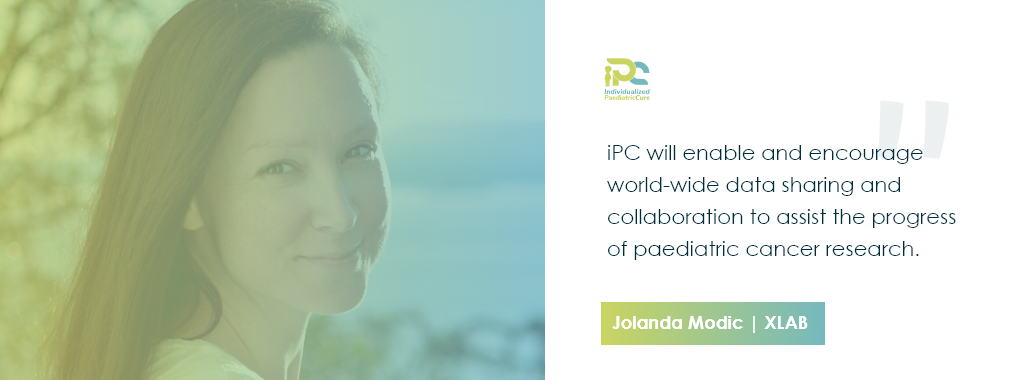Today in a talk with Jolanda Modic about herself and the iPC H2020 project.
Introduce yourself and tell us a bit about your background.
I am a problem solver by heart, an applied mathematician by training, and a cybersecurity and digital privacy specialist by profession. Surrounded by a great team of passionate, smart, and fun people at XLAB, I work as a project manager, proposal writer, data protection advisor, and a researcher.
What is your title and/or role in the project?
With my team at XLAB and together with the group from BSC, I will support researchers and clinicians in the iPC consortium and beyond with new technologies that enable more secure and more efficient search for better treatments of paediatric cancers.
What are your contributions to the project? (Specify what deliverables and/or tasks you are responsible for)
iPC deals with utilizing and analysing sensitive patient data to gain powerful insights into the paediatric cancers and to eventually be able to provide better, more personalised and more effective treatments. The iPC platform that will be developed in the project, will enable cancer researchers and clinicians all across the globe to easily share data, to share insights, and to collaboratively fight this horrible disease.
As the basis for the cancer research lies in the availability, accessibility, and authenticity of patient data, one of the responsibilities of my team is to make sure that the data handled in the iPC platform is safe and secure. The other responsibility we have is to alleviate the clinicians’ and researchers’ burdens of managing technologies they need for their work, by automating their deployment and orchestration.
What challenges can you foresee in the project?
To be able to gain meaningful insights from data and reduce biases in data analytics, large amounts of reliable and high-quality data are needed. The lack of data as well as bad data can be paralyzing. That is why collaboration and data sharing in healthcare are vital, especially in the area of paediatric cancer where no single institution has enough patients or data to sustain trials and research.
The iPC project will provide technological means for collaborative paediatric cancer research and will push for global cooperation, but we will be facing and addressing one great challenge along the way: data (un)availability. Anyone would agree that data sharing (of course, in secure, privacy-respective, and ethical way) is highly beneficial to our society and that collaboration is intrinsic to good scientific practice. But in reality, however, data sharing in healthcare is often viewed with a mix of fear and reluctance. Researchers and clinicians around the globe are, in general, too afraid to share patient data due to the data protection laws that are increasingly stricter, especially regarding health data involving children. Also, in the face of wildly competitive pharmaceutical industry, very few are open to share what could be the key to developing the next cancer treatment. The iPC consortium is aware of these challenges and will, through strong collaboration and openness, demonstrate that this practice and mindset can be changed.
How do you think the project outcome could affect our daily life?
iPC will expand knowledge boundaries of the cancer research community with new insights into how paediatric cancers respond to different treatments and with personalised treatment recommendations for each child. These will have a significant impact on the treatment outcomes, on the long-term side-effect of treatments, and consequently on the quality of life of patients and their loved ones.
